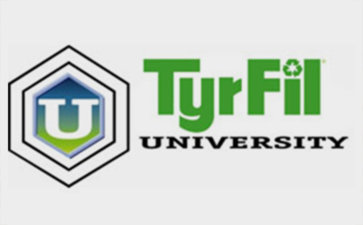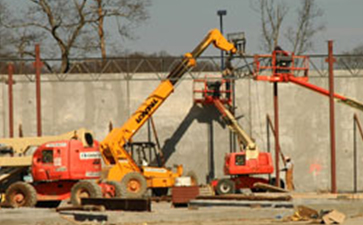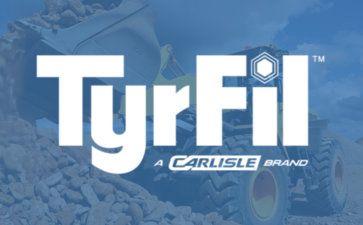Choose TyrFil™ to Extend Tire Life & Circumvent Potential Future Supply Chain Woes
Clearly 2021 has been a year like no other. Nearly every single U.S. manufacturing sector has been affected—or downright plagued—by supply chain issues or unanticipated delays in recent months. This naturally is frustrating for polymer/polyurethane, elastomer and commercial and industrial tire manufacturers and dealers working within our space. It also directly affects the Off-the-Road (OTR) heavy equipment and vehicle category that is the lifeblood for so many in our field. When the supply chain is impacted, business productivity and revenues follow suit. American and overseas businesses unfortunately have almost all been touched by hold-ups in raw materials procurement and shipping, and have suffered from modified access to parts, chemicals, and other necessary goods that are vital to ensuring a smooth and timely manufacturing and distribution cycle.
At Carlisle TyrFil, we feel your pain. We understand your frustration in not having the usual reliable materials delivery that is, and has been, the hallmark of our brand for the past five decades. We are doing everything possible to speed up supply chain access, and quickly remedy these issues so that TyrFil flatproofing can be delivered on the regular distribution timetable that you expect and deserve. We continue to appreciate your understanding and communication. Carlisle TyrFil will never stop working arduously on your behalf to maintain full scale operations for you, your business, and your own valued customers.
Like so many U.S. brands facing similar circumstances, there are aspects of this situation that are temporarily out of our hands. There is, however, a fundamental message that we hope you can share with your OTR equipment operator-customers that may make this journey less difficult, while helping to keep the vital industries that America depends on functioning without setbacks.
That message is simple: Choose TyrFil flatproofing technology for essential OTR equipment.
Heavy “workhorse” equipment is the backbone of any thriving job site—from construction and mining, to waste management and agri-business. Operators in these fields depend on properly functioning tires to get the job done. The health of these core economic sectors impacts the entire U.S. and even global economy. If equipment mobility fails due to tire malfunction—or if operators are forced to rely on more frequent tire replacements that are not quickly forthcoming due to supply chain setbacks—at least a portion of their operation may be required to shut down. No one wants this scenario and, unfortunately, it can have a deleterious ripple effect that only makes our national and global fiscal recovery more prolonged.
TyrFil, the leading liquid polyurethane fill, offers an ideal alternative to traditional air-filled pneumatic and solid aperture tires. Both solid aperture tires and traditional air-filled pneumatic tires have performance limitations. While solid tires are impervious to flats, they are costly, difficult to maneuver and have a rough, bumpy ride. Air-filled pneumatics are highly vulnerable to puncture on the job. Filled-pneumatic tires, on the other hand, are more agile than solids on treacherous, gradated hillside environments and they’re also far less fatiguing on drivers who spend multiple hours behind the wheel. And TyrFil offers the flatproofing assurances that elude pneumatic tires. Where air-filled tires might quickly puncture, filled-pneumatic tires can easily glide over job site debris (such as a rocks, glass, nails and sharp metal pieces and rebar). Tires that use TyrFil remain virtually flat free for the life of the tire. The technology is simple. Liquid polyurethane is pumped into the tire to form an elastomer core that is resilient to puncture damage, making the TyrFil solution viable for heavy earthmoving equipment such as backhoe loaders, bulldozers, and excavators.
Plus, tire or “foam” fill technology can be a game saver—and a tire life cycle “extender”—during these challenging times for the national and international supply chain. According to a Car and Driver article published at the beginning of summer, a possible tire shortage may be “up next.” While the article cautions manufacturers not to “start hoarding tires yet,” it notes that “higher tire demand from China, Covid restrictions affecting rubber-tree planting, and a lack of shipping containers create the global potential of trouble.” The article also notes that commercial tire demand has remained high all through the pandemic. While a crisis isn’t imminent, potential future tire shortages remain something for manufacturers to “keep an eye on.”
When tires last longer, as they do when they are polyurethane-filled, operators don’t need to compromise their revenues or business success based on a lagging supply chain. That’s because TyrFil keeps tires in the field for an extended period. Plus, tire carcasses, using tire fill technology can be effectively retreaded to extend the tire usage life cycle. Not only is this a better solution to help OTR operators evade supply chain challenges, but it’s more beneficial for the environment. Additionally, the ability to repurpose tire carcasses for “second life” applications make them a great carbon footprint-reducing option for multi-national and domestic corporations.
Our Carlisle TyrFil team will continue to keep our valued dealer network apprised of the latest updates and improvements in supply chain fulfillment. In the interim, we hope that the opportunity to further extend tire use offers a financial and logistical upside for the OTR and rental equipment marketplace that is likely feeling the fatigue of current distribution delays— and that may also create growing concerns about rumored tire shortages this coming winter.


